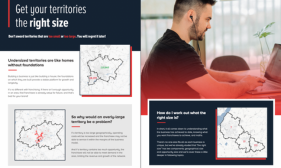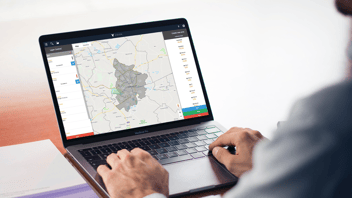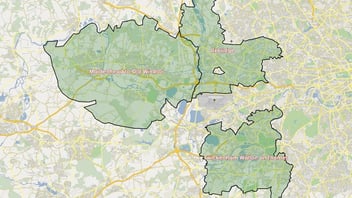May 21, 2012
If you missed part 1 of this series, you can view it here.
What do we have so far?
Up to this point, we’ve used the existing customers to create the socio-economic profile, and we’ve learned of the socio-economic classifications that are pertinent to our franchise brand’s target market.
Ultimately, this has led to a true understanding of who the typical customers are and defined the target market far more intelligently and precisely than 100,000 households or 60,000 ABC1’s ever could.
What we have, is the knowledge that within our territory or catchment area, there are X households that are extremely likely to at some point buy our product or service, or a similar one from a competitor.
Leveraging the data for franchise sales
Before defining your target market through socio-economic profiling, discussions around the commercial opportunity would have been based upon a target market that included your target market but did not represent it truly.
Now that your socio-economic profile has been built, based on your trading history (proven data), you can quote actual levels of target market, in addition to holding accurate and more meaningful discussions around achieved market share and market penetration. For your first franchisees, this will say a thousand words and give them the utmost confidence in what you are telling them. If you have existing franchisees, you’ll be able to go one step further and accurately define their levels of achievement against the target market in year one, year two… etc.
Leveraging the data for franchise marketing
Even with the best intentions, when working with a blanket number of households, your direct marketing activity is extremely limiting and also extremely wasteful.
Socio-economic profiling allows you to accurately pinpoint households that match your target market. By doing so, you can employ leaflet drops that are far more accurate and produce far better results.
It is often said that the average consumer needs to see your message six times before your brand is embedded in their mind. If I asked you “Would you rather hit 12,000 households (of which only 2,000 are your target market) once, or would you rather hit each of those 2,000 target-market households six times?” what would be your response?
The answer is obvious. Only through socio-economic data can you achieve the latter, more desirable of the two.
Summary
With socio-economic data, you can:
(a) enhance your franchisee recruitment discussions with more intelligent information and relevant statistics
AND
(b) alter your marketing strategies to ensure that each action delivers a positive response.
When put in such simple context, why wouldn’t you invest in truly understanding your customers?
Read Part One: Franchise Territory Mapping and Socio-Economics - An Introduction here





